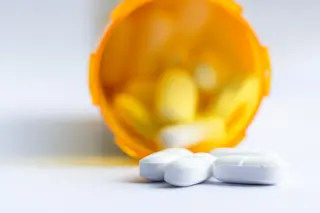Major depressive disorder affects over eight percent of U.S. adults. In young people, the numbers are even more striking: 22 percent of 16- to 17-year-olds and 17 percent of 18- to 25-year-olds experienced at least one major depressive episode in 2020. Treatments are imprecise; only 30 percent of patients show depression remission. But a new study suggests that genetic testing could help doctors choose which antidepressant medicines and dosages to prescribe. The personalized treatment plans could help patients respond quickly and effectively.
The “crux of the study” was to see if genetic testing could “help you choose the medicine that you want to use with [a] particular patient,” says David Oslin, lead author of the study and psychiatrist at the Veteran Affairs’ Mental Illness, Research, Education, and Clinical Center, in a press release.
They are interested in the genes Cytochrome P450. This protein breaks down drugs in the liver. Some ...














